SYNOPSIS:
“The story of Carrie White, a girl brought up, almost in isolation, by her psychotically religious mother Margaret. After an embarrassing incident in the showers causes her fellow pupils to tease Carrie ruthlessly, her teacher Miss Desjardin disciplines them severely. Determined to have revenge, the other students hatch a plot against Carrie, which turns horribly wrong when Carrie’s strange mental powers are unleashed during the school prom.”
REVIEW:
No one is better at playing shy, lonely, troubled girls than Sissy Spacek, on television as well as the cult film Badlands (1973). In 1976 she found her ideal role in Carrie (1976), a miserably unhappy girl who, at home is constantly chastised and physically abused by her loony religious-fanatic mother, and at school is unmercifully mocked by classmates because she’s noticeably different. As the eternal wallflower, Spacek is painfully convincing. Carrie White always looks downward to avoid eye contact, keeps her face hidden by messy hair, holds her books tightly against her developing breasts, keeps her shoulders slumped, pulls her sleeves over her hands and, at those rare times she is forced to speak, almost whispers as if afraid she’ll be yelled at or laughed at.
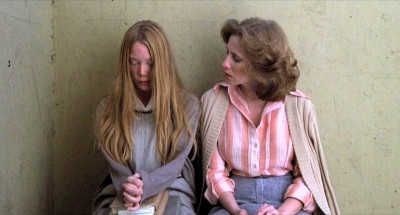 Spacek saw Stephen King‘s horror story as that of a young girl who is unable to express herself verbally after so much mistreatment, she considered Carrie a ‘secret poet’ and thought about the terrible feeling of having to suppress one’s true nature. Because Carrie can’t speak or muster the courage to act on her longings (sexual, too, now that she’s just had her first period), she develops strong telekinetic powers. In King’s book, she’s not that sympathetic, but Spacek puts us firmly on her side, we identify with her depression and her happiness when invited to the prom, and her need for revenge when the one happy night of her life is ruined by her mother and schoolmates.
Spacek saw Stephen King‘s horror story as that of a young girl who is unable to express herself verbally after so much mistreatment, she considered Carrie a ‘secret poet’ and thought about the terrible feeling of having to suppress one’s true nature. Because Carrie can’t speak or muster the courage to act on her longings (sexual, too, now that she’s just had her first period), she develops strong telekinetic powers. In King’s book, she’s not that sympathetic, but Spacek puts us firmly on her side, we identify with her depression and her happiness when invited to the prom, and her need for revenge when the one happy night of her life is ruined by her mother and schoolmates.
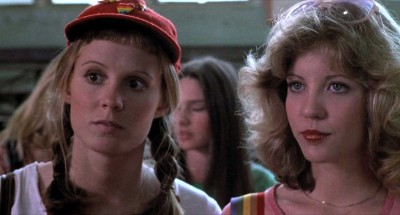 Director Brian DePalma saw King’s story as a religious morality tale. His film deals with the bigotry, conservatism, peer pressure and persecution that can be found in any high school. Ultimately it becomes a story of retribution, teenage or divine, in which Carrie uses her God-given telekinetic powers to destroy almost the entire school population, leaving them to burn in hell (the high school), and finally fights back against her mother, played with gusto by veteran Hollywood actress Piper Laurie, just before co-starring with a mentally-underdeveloped Mel Gibson in the touching Australian film Tim (1979).
Director Brian DePalma saw King’s story as a religious morality tale. His film deals with the bigotry, conservatism, peer pressure and persecution that can be found in any high school. Ultimately it becomes a story of retribution, teenage or divine, in which Carrie uses her God-given telekinetic powers to destroy almost the entire school population, leaving them to burn in hell (the high school), and finally fights back against her mother, played with gusto by veteran Hollywood actress Piper Laurie, just before co-starring with a mentally-underdeveloped Mel Gibson in the touching Australian film Tim (1979).
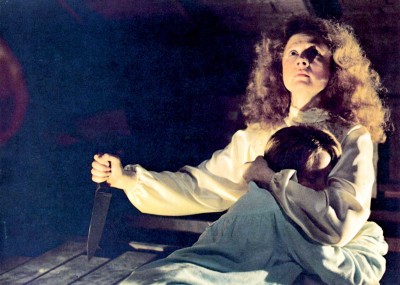 This enjoyable, impressive horror film gets more violent towards the end. DePalma seems to be getting back at the teachers and girls who drove him crazy when he went to high school, but it’s still lively, consistently amusing and genuinely touching. Young Nancy Allen and John Travolta are hysterically funny as the foul-mouthed sadistic teenage couple who humiliate Carrie by dumping pig’s blood on her during the prom. Other fine performances came from then-unknowns William Katt (who apparently refused the role of Luke Skywalker in favour of Carrie) as the boy who discovers Carrie is a gem among the clones, P.J. Soles from Halloween (1978) and Rock’n’Roll High School (1979), as well as Amy Irving and Betty Buckley.
This enjoyable, impressive horror film gets more violent towards the end. DePalma seems to be getting back at the teachers and girls who drove him crazy when he went to high school, but it’s still lively, consistently amusing and genuinely touching. Young Nancy Allen and John Travolta are hysterically funny as the foul-mouthed sadistic teenage couple who humiliate Carrie by dumping pig’s blood on her during the prom. Other fine performances came from then-unknowns William Katt (who apparently refused the role of Luke Skywalker in favour of Carrie) as the boy who discovers Carrie is a gem among the clones, P.J. Soles from Halloween (1978) and Rock’n’Roll High School (1979), as well as Amy Irving and Betty Buckley.
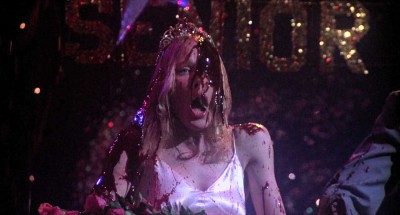 As in all Brian DePalma films, you’ll be able to pinpoint many Hitchcock references, most noticeably Psycho (1960), Marnie (1964) and The Man Who Knew Too Much (1956) – when Amy Irving tries to warn Carrie of impending disaster, it recalls Doris Day at the Albert Hall, for instance. But the film is most indebted to the story of Cinderella: You have your proverbial ugly duckling, the ball at which she looks beautiful, the handsome prince, the catastrophe waiting to happen, the evil mother, and many jealous females who could easily be Cinderella’s step-sisters.
As in all Brian DePalma films, you’ll be able to pinpoint many Hitchcock references, most noticeably Psycho (1960), Marnie (1964) and The Man Who Knew Too Much (1956) – when Amy Irving tries to warn Carrie of impending disaster, it recalls Doris Day at the Albert Hall, for instance. But the film is most indebted to the story of Cinderella: You have your proverbial ugly duckling, the ball at which she looks beautiful, the handsome prince, the catastrophe waiting to happen, the evil mother, and many jealous females who could easily be Cinderella’s step-sisters.
Finally, since Carrie in 1976, screenwriter Lawrence D. Cohen seems to have made a pseudo-career from adapting Stephen King stories like The Tommyknockers (1993) and It (1990), as well as a rather simplified film adaptation of Peter Straub’s novel Ghost Story (1981). Will no one else give poor Larry a job? Unable to tear himself away from his origins, he was even associated with a musical version of Carrie back in 2001. I’ll leave you with that terrifying thought in mind until I return to sterilise you with fear during another terror-filled excursion to the dark side of Hollywood for…Horror News! Toodles!
Bonus Features
DISC ONE:
- NEW 4K Scan Of The Original Negative
- Original Theatrical Trailer (HD)
- Carrie Franchise Trailer Gallery
DISC TWO:
- NEW More Acting Carrie – featuring interviews with Nancy Allen, Betty Buckley, William Katt, Piper Laurie, Edie McClurg and P.J. Soles (20 minutes)
- NEW Writing Carrie – an interview with screenwriter Lawrence Cohen (29 minutes)
- NEW Cutting Carrie – an interview with editor Paul Hirsch (25 minutes)
- NEW Shooting Carrie – an interview with director of photography Mario Tosi (15 minutes)
- NEW Casting Carrie –an interview with casting director Harriet B. Helberg (16 minutes)
- NEW Bucket of Blood – a new interview with composer Pino Donaggio (24 minutes)
- NEW Horror’s Hallowed Grounds – Revisiting The Film’s Original Locations (11 minutes)
- Acting Carrie – Interviews With Actors Sissy Spacek, Amy Irving, Betty Buckley, Nancy Allen, William Katt, Piper Laurie, Priscilla Pointer and P.J. Soles And Art Director Jack Fisk And Director Brian De Palma (43 minutes)
- Visualizing Carrie – Interviews With Brian De Palma, Jack Fisk, Lawrence D. Cohen, Paul Hirsch (41 minutes)
- A Look At “Carrie: The Musical” (6 minutes)
- TV Spots
- Radio Spots
- Still Gallery – Rare Behind-The-Scenes Photos, Posters And Lobby Cards
- Stephen King And The Evolution Of Carrie Text Gallery
Carrie (1976) Collectors Edition is now available on bluray per Shout Factory
 Horror News | HNN Official Site | Horror Movies,Trailers, Reviews
Horror News | HNN Official Site | Horror Movies,Trailers, Reviews
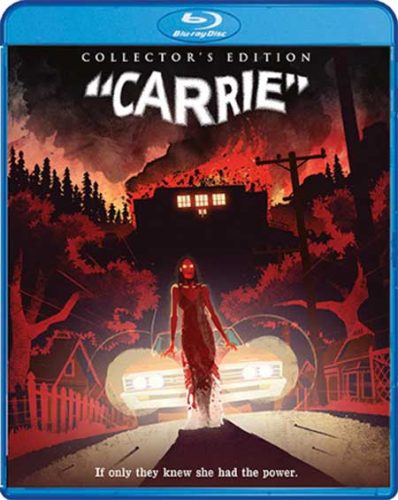
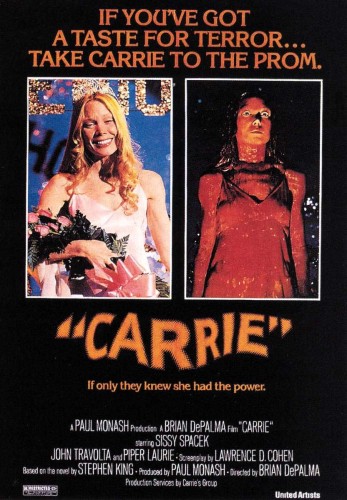

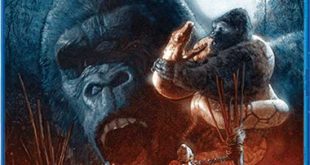
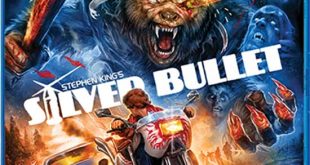
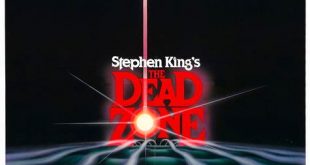
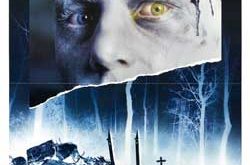
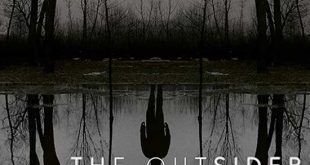
Wonderful review! I first discovered “Carrie” at the age of 11…I’ve been in love with her since then.
By creating Carrie, Stephen King created a character that bullied kids could identify with. I recognized a lot of myself in Carrie. Sissy Spacek played that role beautifully.
Thanks for reading! King tried to re-create that sort of teen-identification in Christine too, but I think Carrie is still superior in this department. King, of course, created the character of Carrie, but both Spacek and De Palma’s direction defined her perfectly.
Great review. I love this movie, but for a good part of it, I was plain bored. It didn’t seem particularly exciting. But once that scene came, the rampage, I was hooked. Carrie creates one of the creepiest/eeriest scene ever.
I actually talk about that scene in depth in my review. I would love it if you had the time to check it out and give me some feedback.
http://horrormoviemedication.blogspot.com/2013/02/carrie.html
Thanks for reading! In a career spanning over four decades, filmmaker Brian De Palma is probably best known for his crime thrillers, directing successful and popular movies such as Carrie (1976), Dressed To Kill (1980), Scarface (1983), The Untouchables (1987), Carlito’s Way (1993), and Mission Impossible (1996), as well as being credited with fostering the careers of actors such as Robert De Niro, Jill Clayburgh, John C. Reilly, John Leguizamo, Andy Garcia and Margot Kidder. De Palma is without question a strange beast. His best notices tend to come from his large-scale studio pictures where, as a hired gun, his excesses could be tempered by a fleet of studio executives or a star whose vanity wouldn’t allow them to look to foolish. Hence The Untouchables and Mission Impossible – notably neither scripted by De Palma – contain all his trademark visual flamboyance and less of his rampant silliness inherent in his smaller, more personal Hitchcockian wannabes (though in terms of silliness, the explosive chewing-gum tunnel finale of Mission Impossible is hard to beat).
However his stylish, often hysterically overwrought (and generally just plain crazy) forays into Hitchcock territory can be immense fun with enough alcohol in the system. Sadly, some of his his later efforts – Raising Cain (1992) and Snake Eyes (1998) in particular – have shown the limitations of his relentless Hitchcock obsession. But, to his credit, the guy has stuck to his guns. An obvious cinephile, De Palma regularly pays homage in his films to the work of great directors of a previous generation – especially Alfred Hitchcock and Howard Hawks – and for this reason his talent has been dismissed by some as purely derivative. Yet his most Hitchcockian film, Sisters (1973), remains his most original. It was also his first major work.